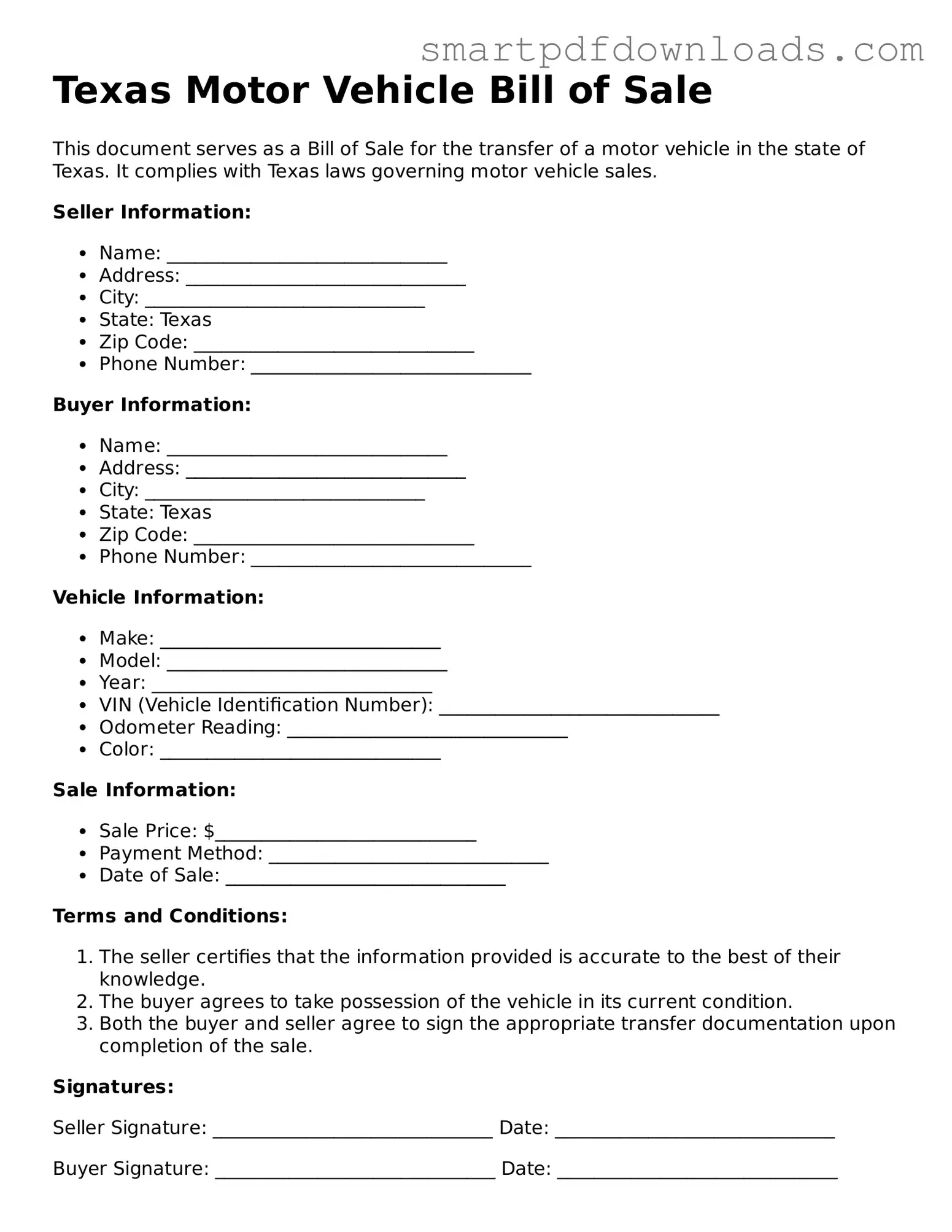Legal Motor Vehicle Bill of Sale Form for the State of Texas
The Texas Motor Vehicle Bill of Sale form serves as a crucial document in the transfer of ownership for vehicles in Texas. This form outlines essential details about the transaction, including the buyer, seller, and vehicle information. Understanding its importance can help ensure a smooth and legal transfer of vehicle ownership.
Edit Motor Vehicle Bill of Sale Online

Legal Motor Vehicle Bill of Sale Form for the State of Texas
Edit Motor Vehicle Bill of Sale Online

Edit Motor Vehicle Bill of Sale Online
or
⇓ PDF File
Finish the form and move on
Edit Motor Vehicle Bill of Sale online fast, without printing.